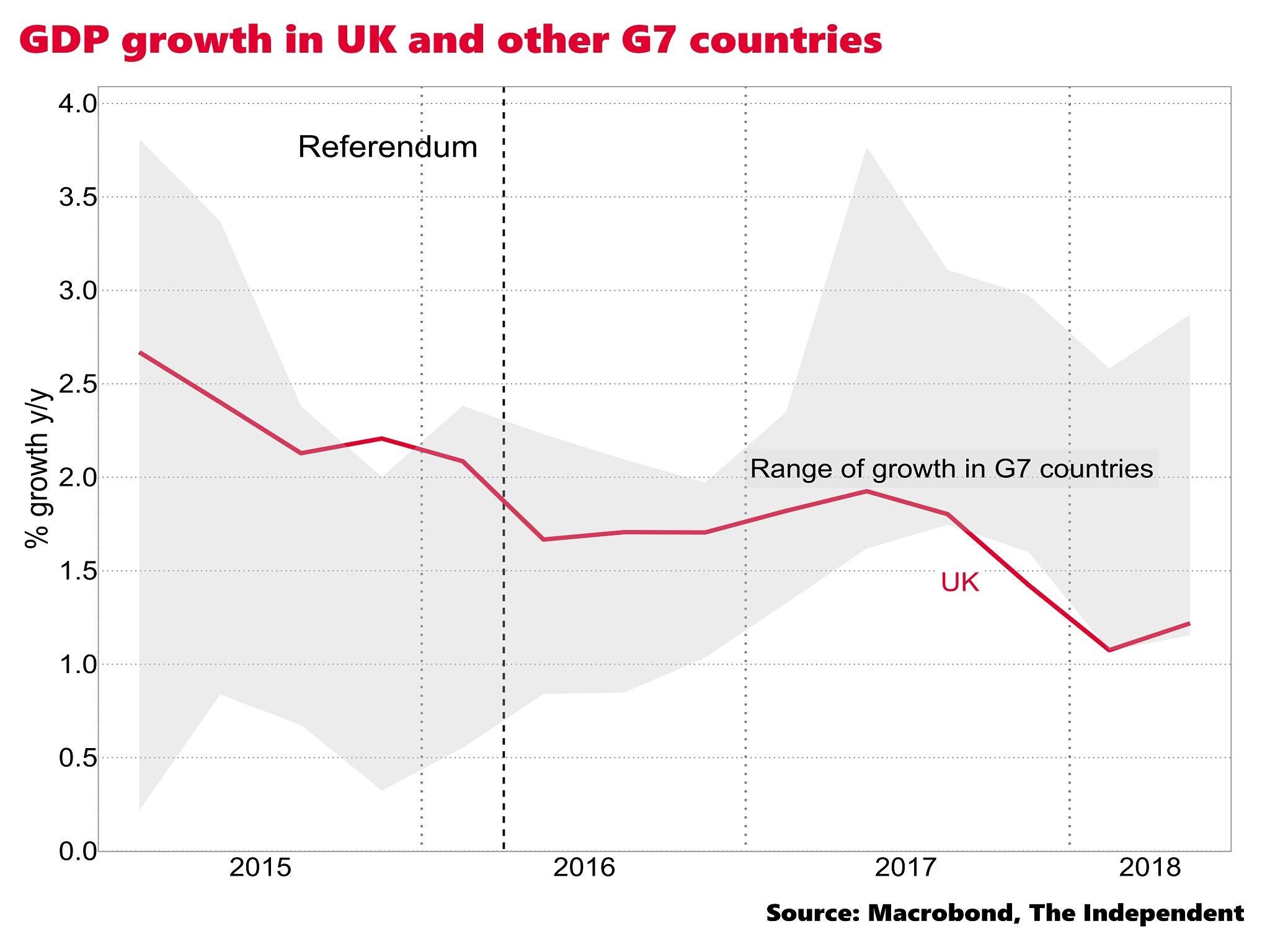Brexit already hurting UK economy and no-deal risks recession, says Office for Budget Responsibility
The OBR said the closest historical parallel to a no-deal Brexit was the ‘Three-Day Week’ in early 1974 which led to a 3 per cent hit to GDP and a recession
Your support helps us to tell the story
From reproductive rights to climate change to Big Tech, The Independent is on the ground when the story is developing. Whether it's investigating the financials of Elon Musk's pro-Trump PAC or producing our latest documentary, 'The A Word', which shines a light on the American women fighting for reproductive rights, we know how important it is to parse out the facts from the messaging.
At such a critical moment in US history, we need reporters on the ground. Your donation allows us to keep sending journalists to speak to both sides of the story.
The Independent is trusted by Americans across the entire political spectrum. And unlike many other quality news outlets, we choose not to lock Americans out of our reporting and analysis with paywalls. We believe quality journalism should be available to everyone, paid for by those who can afford it.
Your support makes all the difference.Brexit is already hurting the UK economy and crashing out of the European Union with no deal risks a recession, the government’s own independent official forecaster has concluded.
“We cannot know for sure what would have happened had the vote gone the other way, but it seems likely that the economy and public finances have been weaker than they otherwise would have been,” said the Office for Budget Responsibility (OBR) in a new report published on Thursday.
The Bank of England and some independent analysts, including the Centre for European Reform, have suggested that the Leave result has held back UK GDP growth by between 2 and 2.5 per cent relative to where it otherwise would have been due to lower household spending, resulting from the spike in inflation after the vote, and lower business investment due to Brexit-related uncertainty.
That equates to a GDP loss of up to £500m a week, more than what Brexit campaigners said, misleadingly, would be the benefit to UK tax revenues from no longer paying into the EU budget.
The OBR described these calculations as plausible and in line with its own estimates, noting that the UK had slipped from having the highest growth rate in the G7 before the vote, to the lowest now.
The OBR’s current growth forecasts are based on the UK achieving an orderly withdrawal process and 21-month transition period next March, during which Britain will remain in the single market and the customs union.
It said that the economic consequences of a disorderly no-deal Brexit next March, which some Brexiteers have been urging, were “next to impossible to calibrate with any confidence”.
But it said perhaps the closest historical parallel was the “Three-Day Week” in early 1974 in response to energy shortages and the threat of a miners’ strike which led to a 3 per cent hit to GDP and a recession.
The OBR added that UK share prices could fall “sharply” in such a scenario.

“Together with heightened uncertainty about future prospects, that would be likely to lead households and businesses to rein back their spending, while banks and other financial intermediaries would be likely to tighten the supply of credit, further reducing demand,” it said.
Theresa May is proposing a free trade deal with the EU to be implemented when the post-Brexit transition phase ends in 2021, but has also insisted that “no-deal is better than a bad deal”.
The OBR also poured cold water on the idea, promoted by Brexiteers, that any economic hit to the UK in a no-deal Brexit or hard Brexit (where we left the customs union entirely) could be cancelled out by major new free trade deals with other parts of the world.
“As well as being challenging to negotiate, the evidence suggests that the benefits of additional bilateral trade deals are likely to be relatively modest – and the impact of any individual deal may not be material for our forecast,” it said.

Join our commenting forum
Join thought-provoking conversations, follow other Independent readers and see their replies
Comments